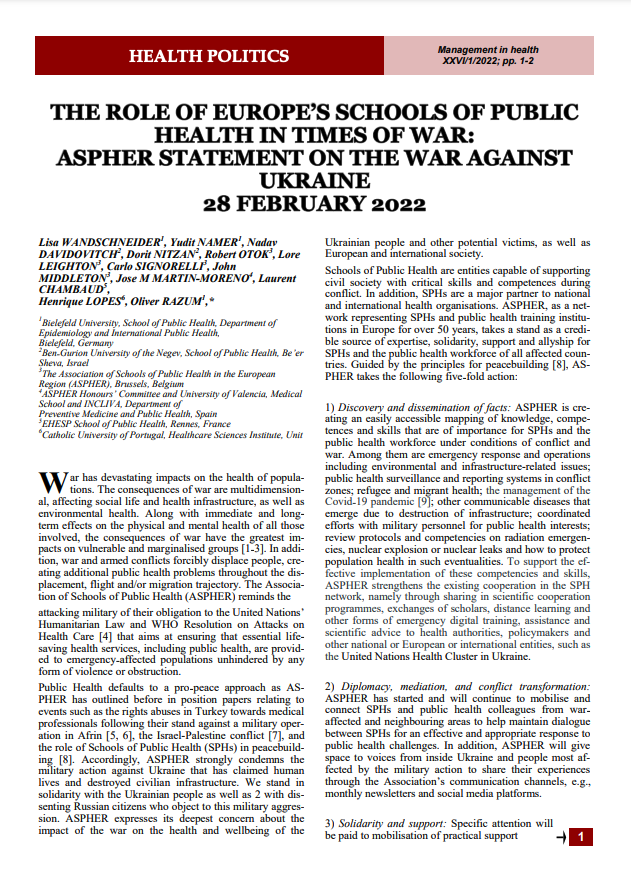Abstract
War has devastating impacts on the health of populations. The consequences of war are multidimensional, affecting social life and health infrastructure, as well as environmental health. Along with immediate and longterm effects on the physical and mental health of all those involved, the consequences of war have the greatest impacts on vulnerable and marginalised groups [1-3]. In addition, war and armed conflicts forcibly displace people, creating additional public health problems throughout the displacement, flight and/or migration trajectory. The Association of Schools of Public Health (ASPHER) reminds the attacking military of their obligation to the United Nations’ Humanitarian Law and WHO Resolution on Attacks on Health Care [4] that aims at ensuring that essential lifesaving health services, including public health, are provided to emergency-affected populations unhindered by any form of violence or obstruction. Public Health defaults to a pro-peace approach as ASPHER has outlined before in position papers relating to events such as the rights abuses in Turkey towards medical professionals following their stand against a military operation in Afrin [5, 6], the Israel-Palestine conflict [7], and the role of Schools of Public Health (SPHs) in peacebuilding [8]. Accordingly, ASPHER strongly condemns the military action against Ukraine that has claimed human lives and destroyed civilian infrastructure. We stand in solidarity with the Ukrainian people as well as 2 with dissenting Russian citizens who object to this military aggression. ASPHER expresses its deepest concern about the impact of the war on the health and wellbeing of the Ukrainian people and other potential victims, as well as European and international society.

